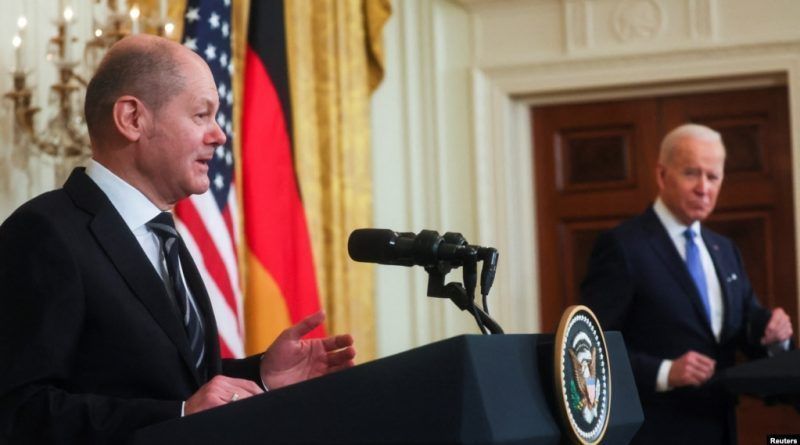Scholz meets with Biden to demonstrate Germany’s unity with the U.S.
Scholz meets with Biden to demonstrate Germany's unity with the U.S.
U.S. President Joe Biden met with German Chancellor Olaf Scholz in Washington. For the first time since becoming German Chancellor, Olaf Scholz traveled to Washington to meet with President Joe Biden at the White House. Scholz called the U.S. and Germany “closest allies.”
During the meeting, Scholz assured Biden that his country supports the U.S. and the rest of its NATO partners in opposing any Russian aggression against Ukraine.
The talks between the German chancellor and the U.S. president concerned the tense situation on Ukraine’s border with Russia, where about 100,000 Russian troops are stationed.
“We are the closest allies, and we are actively working together – this is necessary in order to implement steps to fight Russian aggression against Ukraine,” Scholz said during his inaugural visit to the White House as German chancellor: he took office in December, succeeding Angela Merkel.
For his part, Joe Biden praised the close ties between Washington and Berlin, adding that the two countries are “working in sync” to further deter Russian aggression.
Scholz had already visited the White House as finance minister and deputy chancellor under Angela Merkel; but he had recently been criticized for postponing his first visit to the United States already as chancellor. Scholz took office 60 days ago – unlike him, both Merkel and her predecessor Gerhard Schroeder did not delay their first overseas visit that long.
Despite the fact that the United States and Germany have been staunch allies since the end of World War II, recently Germany’s unambiguous attitude toward preventing Russian aggression has been questioned.
A key point of discord between Washington and Berlin has been the construction of the Nord Stream 2 pipeline, which is supposed to supply Russian natural gas directly to Germany, which needs it.
Earlier, the White House opposed the pipeline, which bypasses Ukraine, thus depriving it of an important source of income from fuel transit – and threatened to impose sanctions.
Subsequently, Washington revised its categorical position in favor of improving relations with Berlin. However, the U.S. recently said that the pipeline would not be put into operation if Russia were to invade Ukraine.
